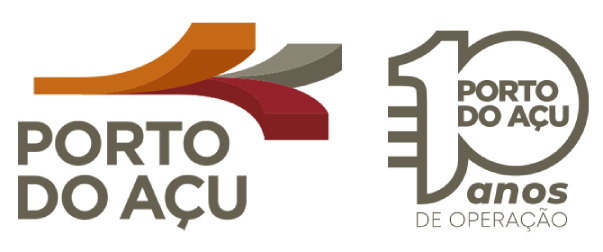 The Port of Açu’s Multicargo Terminal (T-MULT), in São João da Barra, welcomed for the first time a ship loaded with blades for wind power generation. The BBC Gdansk departed from the Port of Cabedelo, in Paraíba state, and docked at the terminal last weekend, when the port unloaded three blades from Denmark, with 40 meters in length and weighing 9 tons each. The cargo will be transported in special trucks to the Gargaú Wind Farm, in São Francisco de Itabapoana, also in the northern part of Rio de Janeiro state.
The Port of Açu’s Multicargo Terminal (T-MULT), in São João da Barra, welcomed for the first time a ship loaded with blades for wind power generation. The BBC Gdansk departed from the Port of Cabedelo, in Paraíba state, and docked at the terminal last weekend, when the port unloaded three blades from Denmark, with 40 meters in length and weighing 9 tons each. The cargo will be transported in special trucks to the Gargaú Wind Farm, in São Francisco de Itabapoana, also in the northern part of Rio de Janeiro state.
Ideraldo Goulart, Operations director at the Port of Açu, noted the terminal’s efficiency. “This first-ever operation at T-MULT consolidates the Port of Açu as a platform to develop solutions to logistic infrastructure and port operation problems in the country, given its strategic location, large area and technical skills of the whole team,” he said.
Alan Silva, commercial specialist at the Port of Açu, stressed that the Multicargo Terminal’s new business was produced by the joint efforts of the commercial and operations teams. “This is a milestone for the port and for the people who have been working to attract new cargo and projects to T-MULT. In importing these wind power blades from Denmark, the terminal extends its consolidation in the international market for project cargo,” he added.
T-MULT already handles pet coke, bauxite, steel industry coal, project cargo and general cargo. The terminal is also authorized to handle any type of solid bulk and has potential to handle containers and motor vehicles.
T-MULT has been operating since the second half of 2016 and has handled over 1.15 million tons of cargo and welcomed 73 vessels. In these last two years, the terminal expedited over 33,000 trucks. Its available infrastructure includes two Mobile Harbor Cranes Terex/Gottwald 4406B, each with a radius of 46 meters and hoisting capacity of up to 100 tons. The terminal also has two patio forklifts, two hoppers with nominal capacity of 360 tons per hour each, two highway scales, 10 metal boxes and four grabs for bulk handling.
Multicargo Terminal
T-MULT has 160,000 square meters of customs area and represents a new distribution alternative in the Brazilian Southeast.
The terminal has 14.5 meters in depth and is certified to receive ships with a draught of up to 13.1 meters. It has 500 meters of quayside, 340 of those being operational, and an annual capacity to handle approximately 4 million tons of solid bulk and general cargo. Adding up shipments of pet coke, coal and bauxite, in 2017, the Multicargo Terminal handled 10 times more than it did in 2016.
Last year, T-MULT started to offer Integrated Logistics Solutions for solid bulk (Port/ Storage/ Transportation). This type of operation handled, in its first year, more than 300,000 tons. In addition to door-to-door solutions for imports and exports, the terminal also did multimodal operations using one transhipment terminal located just 300 km away from the port.
With access to the main Brazilian highways and specialized in solid bulk highway transportation, T-MULT currently performs integrated import and export operations in the states of Rio de Janeiro, Minas Gerais, Goiás and Mato Grosso do Sul.
Another advantage of the Port of Açu Complex is the development of an Export Processing Zone (ZPE), an area of free trade created in the end of 2017 and dedicated to facilities of companies that generate 80% of their revenues from exports. Businesses that process ornamental rocks and coffee are among those that can benefit from the ZPE located in the port area.


